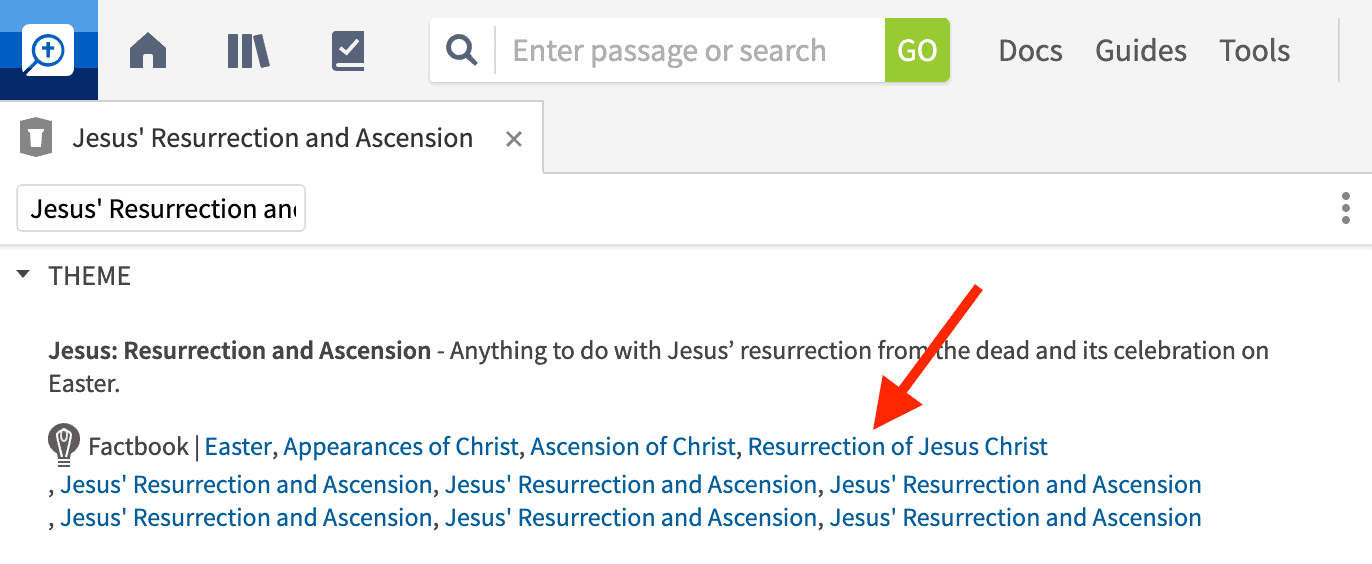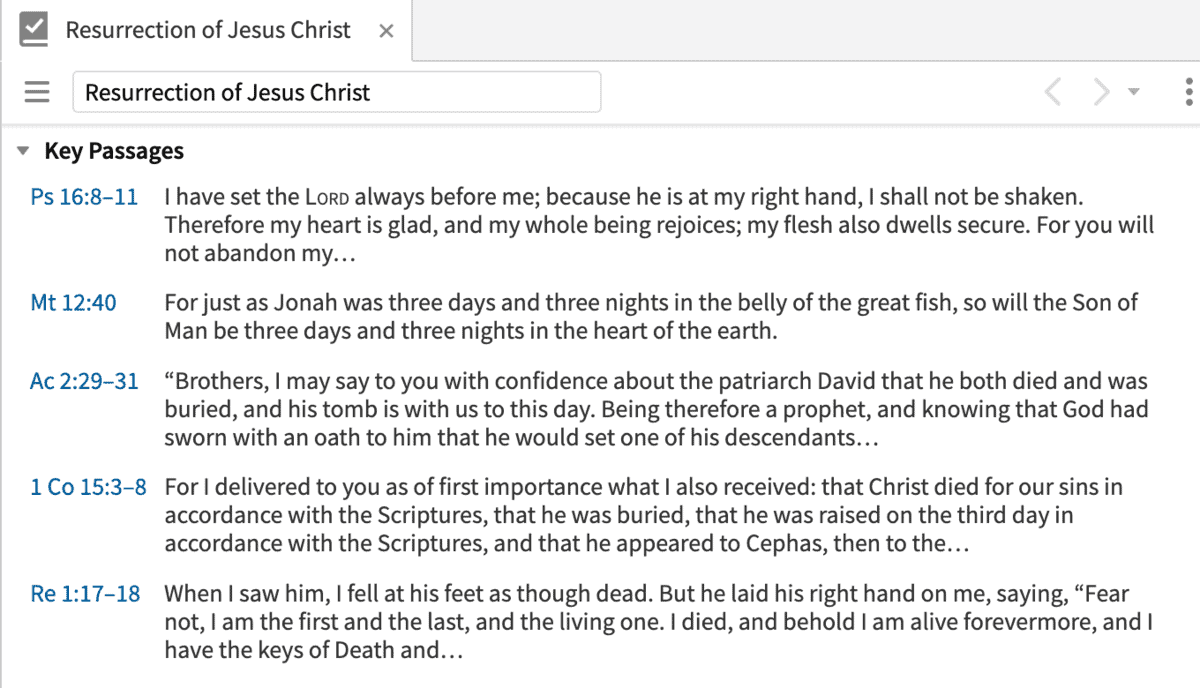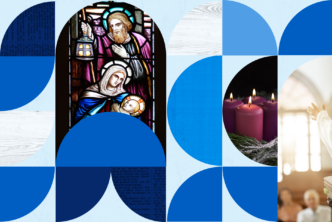More people go to church on Easter than any other day of the year, and churches around the world are already preparing for more visitors—whether online or in person. There are plenty of ways to ensure your Easter service is great, but what about the sermon itself? With all the time and energy you’re investing in the service—extra parking, extra seating, extra childcare, seamless live streaming—what can you do to be sure your Easter sermon is as strong as possible?
Here are 25 Easter sermon ideas to help kickstart your planning for this year’s Easter message.
25 Easter sermon ideas
Coming up with 25 Easter sermon ideas is not as tough as you might think—not when Logos has your back. To pull together the resurrection sermon ideas below, we just fired up the Sermon Starter Guide.
(If you don’t have Logos, no worries! We list all the sermon ideas below.)
Here’s how we did it. First, we opened Logos and searched for “resurrection” in the Sermon Starter Guide and selected Jesus’ resurrection and ascension:
Along with some great ideas for illustrations, quotes, outlines, and even hymns, Logos provides a list of key passages that describe the resurrection:
If you’ve been preaching for many years, you’ve probably taught from the resurrection passages in the Gospels multiple times each. From the above passages we found in Logos, here are some alternative resurrection passages to consider for Easter Sunday. Each one could be your starting point for a sermon:
- Why the resurrection was important to David and Israel—and is important to us (Psalm 16:8–11, Acts 2:29–31)
- Jesus, Jonah, and you (Matt 12:40)
- Who witnessed the resurrected Savior? (1 Cor 15:3–8)
- Jesus: alive forevermore! (Rev 1:17–18)
Logos also pulled in links to entries in the Topic Guide for “Easter” and the “resurrection of Christ.” These entries connect you to more passages and resources that address these topics, leading to more sermon ideas:
- What is Easter, anyway? (Did you know that depending on the translation you use, the word “Easter” never appears in the Bible? Consider preaching a sermon on the origin of the word “Easter” and its connection to Passover.)
- What the resurrection meant to Matthew
- What the resurrection meant to Mark
- What the resurrection meant to Luke
- What the resurrection meant to John
- What the resurrection meant to Paul
- What the resurrection meant to Peter
Thanks to the Sermon Starter Guide, we found a long list of pericopes (Bible excerpts) that relate to the resurrection. This can give you a good idea for Scripture to read during worship. And, of course, there are plenty of sermon ideas here too:
- Jesus is risen—now what? (Matt 28)
- Do you recognize him? (Luke 24:13–35)
- Are you a doubting Thomas? (John 20:19–29)
- Jesus still provides (John 21:1–14)
The Sermon Starter also gives you entire thematic outlines to work from, so you can lean on Logos to help frame your Easter message. Here are five:
- Who foretold Jesus’ resurrection?
- How sure can we be of Jesus’ resurrection?
- Why was Jesus’ resurrection necessary?
- What happened when Jesus rose from the grave?
- How do we benefit from the resurrection of Jesus?
One thematic outline in the Sermon Starter Guide included a wealth of additional sermon ideas—each could be an entire sermon in and of itself!
- The resurrection of Jesus foretold: Preach on passages that prophesied the resurrection of Jesus.
- The resurrection preached by the apostles: Preach on passages demonstrating the centrality of the resurrection in the ministry and preaching of the Apostles.
- The certainty of the resurrection: Preach on the historical reliability of the resurrection, and why the Apostles made it so prominent in their preaching.
- The necessity of the resurrection: Preach on the reasons the truth of Christianity is dependent upon the reality of the resurrection.
- The results of Jesus Christ’s resurrection: What are the practical implications of Jesus resurrection from the dead? Use the verses cited above to build a case for those practical ramifications.
The Logos Sermon Starter Guide can help you prepare sermons all year long and makes researching easy. It searches your Logos library and gathers useful information as you prepare to preach or teach on a topic or biblical passage. By gathering everything your library has to offer into one location, the Sermon Starter Guide helps take your study from interpretation to application.
See how it works:
The Sermon Starter Guide is available in Logos Starter and above (or you can start exploring the Scriptures today with a free version of Logos Bible Software).








